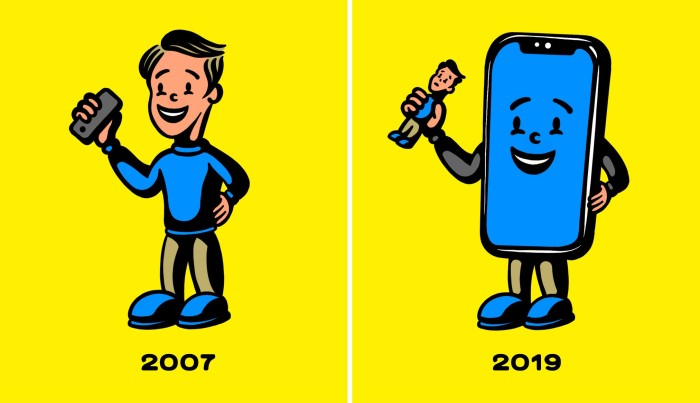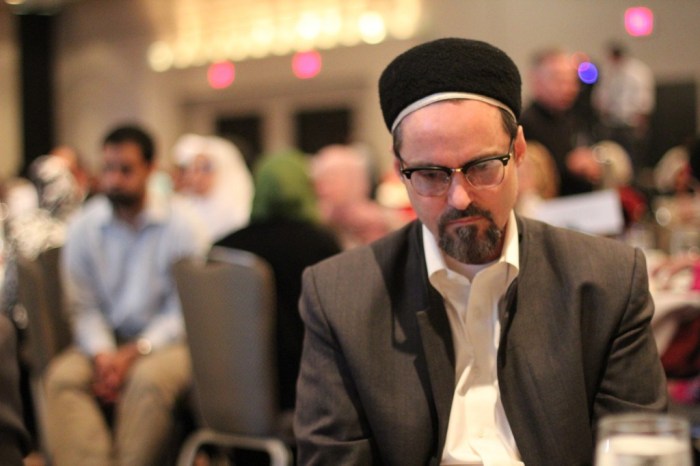One of the many negative effects of modern technology is that our memories are no longer what they used to be. This digital age is completely changing and potentially damaging the way we remember things forever. Our reliance on smartphones, search engines, and social media is affecting our memories so much that there has been a key shift in both the way we process memory and our attitudes to memory: we are moving away from the act of remembering, to the act of knowing where to look online for quick answers to our questions. Essentially, we no longer need to remember because anything we need to find, we can simply look up in a matter of seconds.
Many of us have also evolved from a reliance on digital memory to a total dependence on it. Modern technology has therefore resulted in causing us to become obsessed in recording what we are seeing, rather than trying to actively remember it. We are seeing life through how it can later be shared on social media, rather than living in the moment. We record what we want people to see and subsequently we are remembering it through how it has been filtered and portrayed on social media, rather than how it actually happened. It seems that our experiences are no longer ‘real’ unless they are Tweeted, Instagrammed, or YouTubed. Our smart phones and new technologies thus act as our memory repositories, with so much of our lives entrusted to the cloud.
Most of us can no longer do simple things such as remember phone numbers. We also no longer remember directions, We don’t have to, we don’t the feel the need to. Assuming we could to begin with, most of us can no longer recite poems (something that is almost unheard of now). And even our most personal events are generally recorded on our mobiles. Rather than remembering what we ate at someone’s wedding, instead we scroll back to look at all the images we took of the food. This is just one example of how the act of recording has become more urgent than seeing that which is being recorded. As a result the present is literally being screened out by the digital as the default way of seeing the world, with the unrecorded areas of our lives shrinking fast.
Facebook doesn’t just want to own your images, it wants to own your temporality. Slowly, and steadily, we outsource our relationship to time to a corporation, which reminds us every morning where we were last year, or a decade ago. Not only does it distort memory, it also distorts forgetting, an essential tool of happiness…Facebook randomizes and decontextualizes memory and detaches it from our current self. – Philip Kennicott
It may actually be worse. Some of us may have no control over what gets posted online about us during our formative years. Recent reports suggest almost a quarter of children begin their digital lives when parents upload their prenatal sonogram scans to the internet. 92 percent of toddlers under the age of 2 already have their own unique digital identity. Parents are now shaping their children’s digital identity long before these young people open their first email. What these parents may not be aware of is the disclosures they make online about their kids are sure to follow their children into adulthood. In light of a person recently trying to sue his parents for giving birth to him without his consent, I wonder how long it will be before a teenager sues their parents for sharing their entire life thus far online without their consent.
Another way technology is affecting us is by taking away our ability to just daydream, to just be bored. In fact, technology has stopped us from just being. Here are four different views on why being bored is more beneficial to us than we perhaps realise:
The gift of boredom is that it can show people that you have permission to not read. You have permission to try to just do nothing. Because that is the way that we do our best problem solving and come up with original ideas. You are not doing that by refreshing your Twitter feed or the headlines again. – Manoush Zomorodi
It’s all too easy to spend hours staring at YouTube as algorithmically generated recommendations feed more and more content into the queue. But to spend hours deliberately looking out a window—virtual or otherwise—is another thing entirely. It requires mental fortitude and endurance. A capacity for boredom. It challenges you to resist opening another tab, to avoid checking for notifications, and to merely observe the landscape before you. – Arielle Pardes
Boredom is not tragic. Properly understood, boredom helps us understand time, and ourselves. Unlike fun or work, boredom is not about anything; it is our encounter with pure time as form and content. With ads and screens and handheld devices ubiquitous, we don’t get to have that experience that much anymore. We should teach the young people to feel comfortable with time…So lean in to boredom, into that intense experience of time untouched by beauty, pleasure, comfort and all other temporal salubrious sensations. Observe it, how your mind responds to boredom, what you feel and think when you get bored. This form of metathinking can help you overcome your boredom, and learn about yourself and the world in the process…Don’t pull out a screen at every idle moment. Boredom is the last privilege of a free mind. – Gayatri Devi
Boredom teaches us that life isn’t a parade of amusements. More important, it spawns creativity and self-sufficiency…Despite the lesson most adults learned growing up — boredom is for boring people — boredom is useful. It’s good for you. If kids don’t figure this out early on, they’re in for a nasty surprise…Every spare moment is to be optimized, maximized, driven toward a goal. When not being uberparented, kids today are left to their own devices — their own digital devices, that is…Things happen when you’re bored…You might turn inward and use the time to think. You might reach for a book. You might imagine your way to a better job. Boredom leads to flights of fancy. But ultimately, to self-discipline. To resourcefulness. The ability to handle boredom, not surprisingly, is correlated with the ability to focus and to self-regulate…It’s especially important that kids get bored — and be allowed to stay bored — when they’re young. That it not be considered “a problem” to be avoided or eradicated by the higher-ups, but instead something kids grapple with on their own…Perhaps in an incessant, up-the-ante world, we could do with a little less excitement. – Pamela Paul

More alarmingly science is only now starting to determine just how important being bored is to our mental health. The more time we spend online in the digital realm, the less we are listening to ourselves, the less our thoughts wander, and it’s only when thoughts are allowed to wander that they become interesting. Over the past decade or so, neuroscientists have come to recognise the value of a more inward kind of attention. This inward mind-wandering, far from being random neural chatter, is now recognised as the source of some of our deepest insights and most strategic thoughts, thoughts that are crucial to mental health and creativity.
Scientists first started taking mind-wandering seriously after noticing that when people in a brain scanner have no mental tasks to perform and are thinking about nothing in particular, their neurons do not rest but instead become active in a different way. In the brain’s resting state, a web of interacting brain regions called the “default-mode network” kicks into gear. Our minds start roaming through time and space, replaying memories and conjuring future scenarios. We reflect on our personal relationships, simulating encounters with others as emotions such as anger, joy, or anxiety ghost through us. We also solve problems, seemingly without effort, which is why we have the truism that the best ideas come to us when we are in the shower or going for a walk.
From an Islamic perspective, we need time to mentally get away from it all so we can spiritually grow. In bodybuilding muscles do not grow in the gym, they actually grow whilst resting and recuperating outside of the gym, assuming they are given enough time to rest. The spiritual brain works in a similar capacity, where it grows when resting (in contemplation), again assuming it is given enough time to rest.
From a saying of the Prophet Muhammad (peace be upon him) we know there are two blessings which many people misuse, their health and their free time. We also know that the Prophet said that “A servant of God will remain standing on the Day of Judgment until he is questioned about his time and how he used it.”
That is one of the reasons why the Prophet would retire to a cave just on the outskirts of the town of Mecca. Since the Prophet was deeply interested in matters beyond this mundane life, he would often spends days in this small cave to get away from his busy trading life, in seclusion with his thoughts, thinking, contemplating, understanding, comprehending, and self-reflecting. He often did this even before receiving the official call to prophethood at the age of 40.
The cave (known as Hira‘ on the Mountain of Noor (light)), which has miraculously survived to this day, gives a very vivid image of the Prophet’s spiritual inclinations. Resting on the top of one of the mountains north of Mecca, the cave is completely isolated from the rest of the world. In fact, it is not easy to find even if one knew it existed. Once inside the cave, it is a total isolation. Nothing can be seen other than the clear, beautiful sky above and the many surrounding mountains. Very little of the outside world can be seen or heard from inside the cave. In fact it was here inside this cave where God revealed to the Prophet the first verses of the Qur’an through the angel Jibraeel.
This idea of contemplation is central to Islam. In multiple places the Qur’an reminds readers that it is itself only a reminder and as such it continuously asks the reader questions of self-reflection such as “Do you not hear?”, “Do you not see?”, “Do you not understand?”, “Do you not contemplate?”, “Do you not reflect?”, “Do you not recollect?”, and so forth. In addition, Muslims are instructed to get away from it all 5 times a day through our daily prayers. 5 prayers a day, every day, 365 days a year. Islamic history tells us that God initially wanted us to pray 50 times a day, but the Prophet managed to bring this number down to 5. The number 50 shows just how much we perhaps need to stop and reflect more inwardly on a regular basis.
My favourite scholar, Shaykh Hamza Yusuf, has touched upon this idea many times during his lectures. His are just some of his words of advice that all Muslims should take great heed of:
The great sin of our time, in my estimation, especially amongst young people, who are preoccupied on their cell phones, is distractibility. This is called ‘acedia’ in the seven deadly sins. The great desert monks called it the ‘noonday devil’. And they say that its quality was always to be like that of the monk, who instead of meditating, would look to the window and would listen to see if anybody was in the quarters. Like people now who check their cell phones to see if they have got any new notifications.
People are losing their ability to sit and be patient in thinking deeply about things. The quality of boredom (malal) and being bored is very important. It allows us space and time for creativity. But now everybody has these machines so they are never bored anymore. They are never left to ‘their own’ devices to think of something.
Contemplation and the idea of actually being alone does not really exist anymore. One of the things now, with all these technologies, is that people don’t get bored anymore, because they just go on YouTube and watch videos, or they text somebody. They don’t have that downtime. Boredom is a very important part of the human experience, because out of boredom comes great creativity. One of the things that Kierkegaard talks about is that we are becoming a culture of busyness, everybody is busy, and he was talking about Denmark 200 years ago. So think about what he would think of our culture now.
St Thomas Aquinas said that every culture has to have certain peoples that all they do is contemplate, and every culture historically had those people. And those people are very important people because they are the Socrates’s of that culture, they are the gadflies. They are the people that challenge whatever the politically correct views of existence are out there. Confucius said when everybody says ‘this is good’ then that is actually bad, if you don’t have people challenging, if you don’t have people questioning these things.
And there’s so many people that they will throw these pat responses: “You’re not against progress are you? You can’t be against progress.” Well, if you are lemmings and your progress is going over the cliff, do you really call that progress? We are committing social communitarian suicide, as a people, as a species. What is happening to us as a people?
We have got a culture of people that have been so dumbed down through this educational process, because they are not given any time to think. They cannot just sit back and think, because thinking is a dangerous thing. But as Heidegger pointed out the word think is related to the word thank. There is a powerful human need to think because thinking is a way of thanking the One who gave you the gift of thought.



